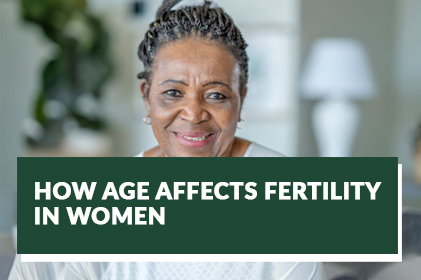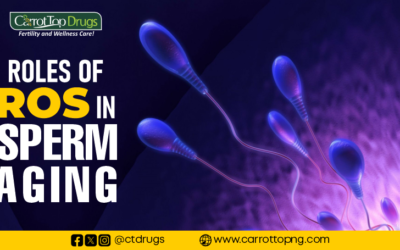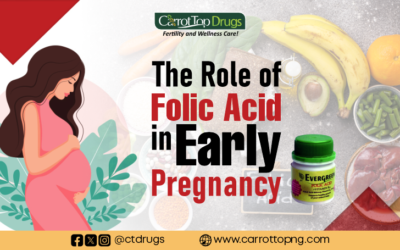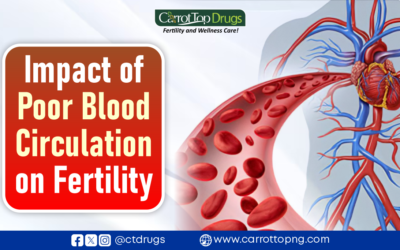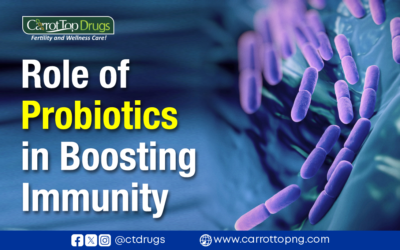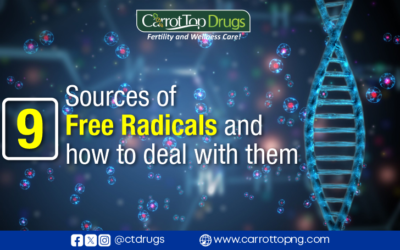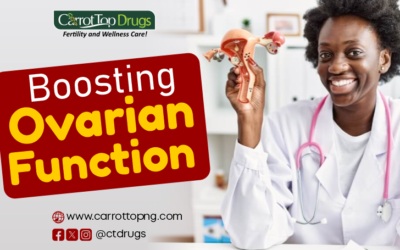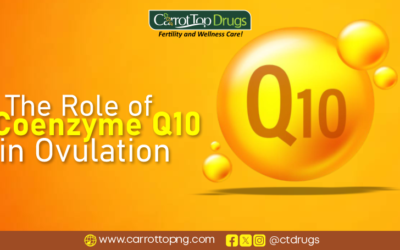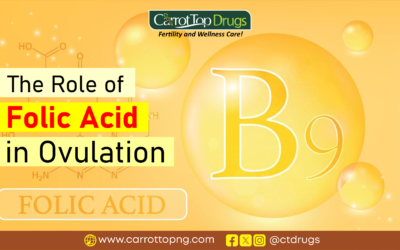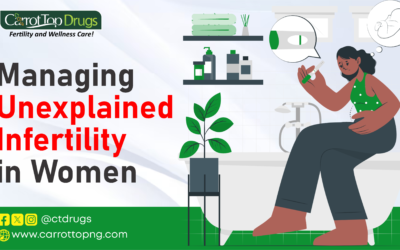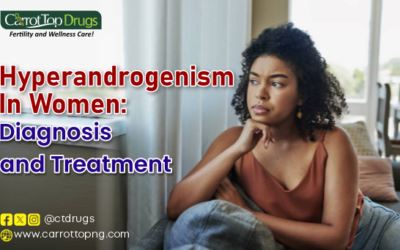Introduction
The decision to start a family is deeply personal and influenced by various factors. In recent years, there has been a growing trend of postponing motherhood, raising questions about the impact of age on female fertility.
Understanding the Female Reproductive System
To grasp the profound impact of age on female fertility, it’s crucial to understand how the female reproductive system functions. The female reproductive system is a complex network of organs and hormones that work together to facilitate conception and pregnancy. As women age, this intricate system undergoes natural changes that can significantly affect fertility.
One of the central aspects of the impact of age on female fertility is the finite number of eggs a woman is born with. Unlike men who continuously produce sperm, women have a fixed reservoir of eggs. As women age, the quantity and quality of these eggs diminish, increasing the risk of chromosomal abnormalities, miscarriages, and birth defects.
The female reproductive system is also regulated by hormones, which control ovulation and menstrual cycles. With age, hormonal changes become more pronounced, leading to irregular menstrual cycles and less predictable ovulation. These shifts, influenced by the impact of age on female fertility, can create challenges for those trying to conceive.
Fertility in the Twenties
In a woman’s twenties, the impact of age on female fertility is notably advantageous, making it the prime period for starting a family. Fertility during this decade is like a well-tuned engine, running smoothly and efficiently. Women in their twenties typically have a surplus of high-quality eggs, increasing the odds of successful conception and reducing the risk of genetic abnormalities, miscarriages, and birth defects. Additionally, regular menstrual cycles make it easier to predict ovulation accurately, simplifying family planning. The biological advantages, coupled with personal and societal support, contribute to the perception that the twenties are the optimal time for parenthood.
Moreover, the twenties offer individuals a unique balance between personal growth and family planning. Many women in this age group can pursue both career aspirations and motherhood simultaneously. This flexibility empowers them to make choices aligning with their life goals and values. While the twenties are a period of peak fertility and numerous advantages, family planning decisions are highly individualized. Understanding the impact of age on female fertility is just one aspect to consider in the broader context of one’s life journey. Factors such as personal goals, relationships, and circumstances play significant roles in determining the right time for parenthood.
Fertility in the Thirties
As women enter their thirties, a phase marked by personal growth and self-discovery, understanding the impact of age on female fertility becomes increasingly pertinent. It’s a period when fertility undergoes a subtle but significant shift.
One challenge in a woman’s thirties is the gradual decline in both egg quality and quantity, a central aspect of the impact of age on female fertility. Achieving pregnancy may take more time and effort due to irregular menstrual cycles and less predictable ovulation patterns. This can lead to emotional stress and anxiety for individuals and couples alike.
Another concern is the increased likelihood of miscarriages and birth defects as egg quality diminishes. This underscores the importance of informed decision-making regarding family planning and considering potential medical interventions if needed.
Fertility in the Forties
Entering the forties marks a profound shift in a woman’s reproductive journey, bringing distinctive challenges due to the impact of age on female fertility. While the desire for motherhood often remains strong, the biological landscape undergoes substantial changes, necessitating a deeper understanding of the complexities involved.
By this decade, the impact of age on female fertility becomes undeniable. A woman’s fertility takes a significant hit, characterized by a substantial decline in both the quantity and quality of her eggs. This dwindling egg reserve means that the chances of getting pregnant naturally become increasingly slim. Irregular menstrual cycles and unpredictable ovulation patterns can further complicate the process of conception.
Another critical aspect of fertility in the forties is the heightened risk of pregnancy-related complications. The impact of age on female fertility extends to the pregnancy itself, with older mothers facing an increased likelihood of gestational diabetes, high blood pressure, and the need for cesarean sections. These health concerns pose potential risks not only to the mother but also to the developing fetus.
Emotional and Psychological Aspects
The impact of age on female fertility transcends the biological realm and extends into the emotional and psychological spheres. As women confront fertility challenges associated with aging, they often find themselves navigating a complex landscape of emotions, stress, and disappointment.
The emotional toll of fertility challenges can be profound. Women and couples may experience stress, anxiety, and frustration as they grapple with difficulties conceiving. The societal pressure to start a family at a certain age can exacerbate these feelings, leading to a sense of inadequacy or failure.
The impact of age on female fertility can also strain relationships. Couples may find themselves grappling with feelings of blame or guilt, even though fertility challenges are rarely the result of a single person’s actions or choices.
Seeking emotional support is crucial. Many individuals and couples benefit from counseling or support groups tailored to fertility challenges. Additionally, maintaining a strong support network of friends and family can offer much-needed encouragement and understanding.
Factors Affecting Fertility
Several lifestyle factors can also affect fertility, irrespective of age. Smoking, excessive alcohol consumption, obesity, and poor diet can all contribute to fertility issues. These factors are important to consider as they can compound the impact of age on female fertility and affect a woman’s ability to conceive.
Smoking, for instance, not only decreases the number of eggs a woman has but also reduces the quality of those eggs. This double whammy can intensify the impact of age on female fertility, especially for smokers.
Excessive alcohol consumption can disrupt hormonal balance and interfere with ovulation, making it more challenging to conceive. Similarly, obesity can lead to irregular menstrual cycles and hormonal imbalances, further complicating fertility.
Poor dietary habits can also impact fertility by affecting overall health and hormonal regulation. A diet lacking in essential nutrients can lead to deficiencies that compromise reproductive health.
Understanding the interplay of these lifestyle factors with the impact of age on female fertility is essential for anyone considering family planning. Making positive lifestyle choices can mitigate potential fertility challenges and improve the chances of a successful pregnancy.
Planning Ahead
Understanding the potential challenges associated with age-related fertility decline can encourage women to plan for their reproductive futures more intentionally. This awareness empowers individuals to align their family-building goals with their personal aspirations and circumstances, allowing them to make choices that best suit their unique life journeys.
Moreover, acknowledging the impact of age on female fertility can prompt individuals to explore various family planning options, such as egg freezing or assisted reproductive technologies. These options offer opportunities to preserve reproductive potential while focusing on personal and professional growth during one’s prime years.
Planning ahead also involves open communication with partners and healthcare professionals. Discussing family planning goals and potential challenges related to the impact of age on female fertility can help couples make joint decisions and seek appropriate medical guidance when needed. A proactive approach to family planning not only enhances the chances of a successful pregnancy but also minimizes the stress and uncertainty often associated with age-related fertility decline.
Fertility Preservation Options
In today’s world, where personal and career goals often intersect with the challenges of getting pregnant as one gets older, fertility preservation options have become valuable. One of these options is egg freezing, which allows individuals and couples to postpone having children for various reasons, like advancing their careers or dealing with personal circumstances. This technology empowers women to take charge of when they want to have children, providing reassurance in a society where declining fertility with age is a significant concern.
Egg freezing is a process where a woman’s eggs are collected, frozen, and stored for future use. By preserving their eggs at a younger age, people can potentially overcome some of the difficulties associated with age-related fertility decline. These frozen eggs maintain the quality and viability of younger eggs, increasing the chances of a successful pregnancy when they decide to start a family. This proactive approach lets individuals align family planning with their life goals without compromising their ability to have children.
Moreover, fertility preservation options like egg freezing offer security and flexibility. They allow individuals to concentrate on personal and career growth during their twenties and thirties, knowing that they have preserved their reproductive options. This can ease the societal pressures and expectations related to family planning, enabling women to make choices that suit their unique life situations.
Supplement
The decline in egg quality is one impact of age on female fertility that many have sought answers for. With this decline, the chances of pregnancy are reduced. This could lead to infertility in women. However, there are some nutrients that can help. Myo-inositol, folic acid, and melatonin are some of the ingredients in Evergreen EggBoost For Women. We recommend Evergreen EggBoost for Women for these reasons:
Myo-Inositol:
Myo-inositol is a naturally occurring compound found in many foods. It has the potential to improve fertility, particularly in women with conditions like Polycystic Ovary Syndrome (PCOS). Myo-inositol is believed to help regulate insulin levels and improve egg quality. It may also play a role in optimizing ovarian function, which can be especially beneficial for women of advanced reproductive age. Some studies suggest that myo-inositol supplementation could help women facing age-related fertility challenges.
Folic Acid:
Folic acid, a B-vitamin, is well-known for its importance during pregnancy to prevent birth defects. However, it may also have a positive impact on female fertility, regardless of age. Folic acid is involved in DNA synthesis and repair, which are essential processes during egg development and fertilization. Adequate folic acid intake before and during pregnancy can reduce the risk of neural tube defects in offspring. This essential nutrient may also contribute to healthier eggs and a more conducive environment for conception.
Melatonin:
Melatonin is a hormone that regulates the sleep-wake cycle, but its potential impact on female fertility has gained attention. Research suggests that melatonin may have antioxidant properties, helping protect eggs from oxidative stress, which can increase with age. Oxidative stress can harm egg quality and DNA integrity, making conception more challenging. Melatonin supplementation may potentially mitigate these effects and support healthier eggs, especially in older women. It offers promise as a supplement that could positively influence age-related fertility issues.
Conclusion
The impact of age on female fertility is obvious as with increase in age, there is a declin in fertility. However, we advice that you follow the tips above as much as you can. Evergreen EggBoost is a supplement that we recommend to help boost your egg quality and help relieve the impact of age on female fertility.
Frequently Asked Questions (FAQs)
- Q: What age-related changes affect female fertility?
A: As women age, they experience a decline in the quality and quantity of eggs, irregular menstrual cycles, and an increased risk of chromosomal abnormalities, which can impact fertility.
- Q: At what age does female fertility start to decline significantly?
A: Female fertility begins to decline gradually in the late twenties and more noticeably after the age of 35. The decline becomes steeper in the early forties.
- Q: Can lifestyle factors, such as diet and exercise, affect age-related fertility decline?
A: Yes, a healthy lifestyle can positively impact fertility at any age. Proper nutrition, regular exercise, and maintaining a healthy weight can help optimize reproductive health.
- Q: How does age affect a woman’s ability to conceive naturally?
A: With age, the chances of getting pregnant naturally decrease, and the time it takes to conceive may increase. There’s also a higher risk of miscarriages and birth defects.
- Q: Are there any medical interventions that can mitigate the impact of age on female fertility?
A: Some medical interventions, like fertility treatments and assisted reproductive technologies, can help older women conceive. Consult a fertility specialist for personalized guidance.
- Q: Is there an ideal age for women to consider starting a family from a fertility perspective?
A: Fertility peaks in a woman’s twenties, but the ideal age for starting a family varies based on individual circumstances and life goals. It’s essential to consider personal factors alongside fertility when making this decision.
- Q: How can women assess their fertility potential as they age?
A: Fertility assessments, including hormone tests and ovarian reserve evaluations, can provide insights into a woman’s reproductive health. Consulting a healthcare provider or fertility specialist is advisable for a comprehensive assessment.

